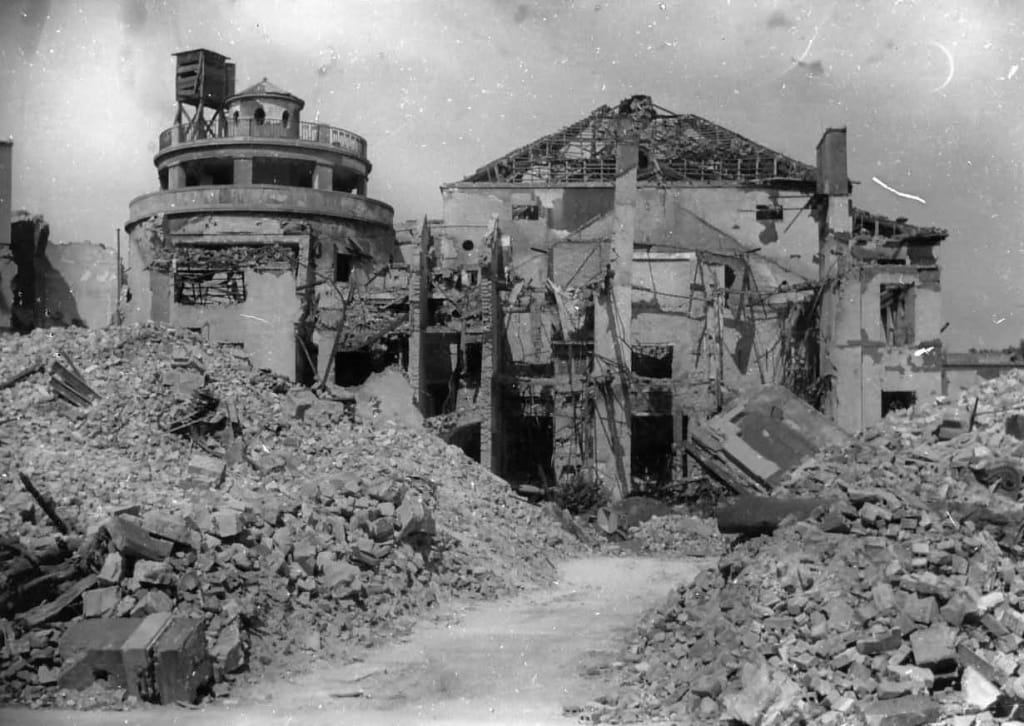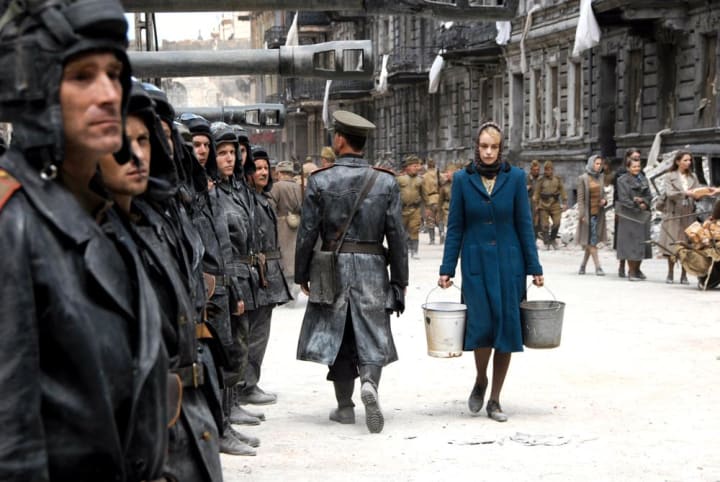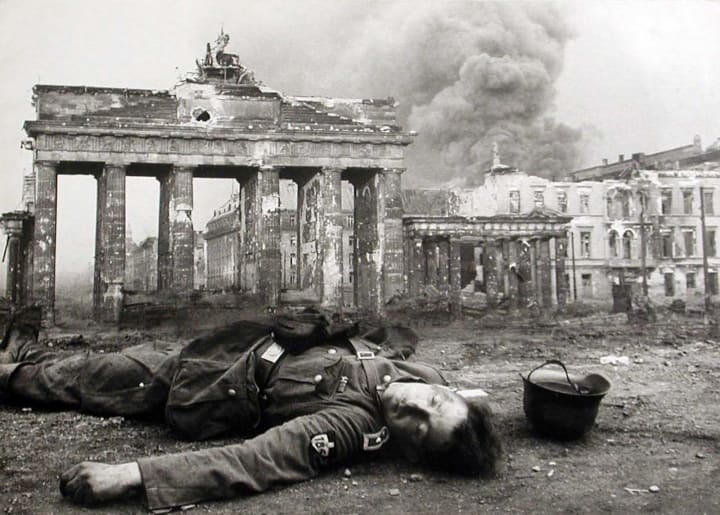The Rape of Berlin During World War II
By the spring of 1945, as Soviet forces took over a devastated Berlin, the lawless Red Army looted, killed, and raped nearly 100,000 German women, fuelled by revenge and alcohol.

The War Crimes of the Red Army
Antony Beevor, author of the acclaimed book ' Berlin: The Downfall 1945 '. did not mince any words when he said,
“They raped every German female from eight to 80."
The book talks about the massive war crimes the victorious Red Army committed as they entered Berlin. The subject of the Red Army rapes in Germany is so repressed that not even war veterans are willing to talk about it. And adding to the bestiality, a handful of Russian war veterans were even unrepentant about their actions even today, as a leader of a tank regiment said,
"They all lifted their skirts for us and lay on the bed. Two million of our children were born in Germany.”
Drinks of every variety, including dangerous chemicals seized from laboratories and workshops, and a fanatic desire to have revenge were significant factors behind the Red Army violence, as one Soviet major told a British journalist then.
"Our fellows were so sex-starved that they often raped old women of sixty, seventy, or even eighty - much to these grandmothers' surprise, if not downright delight."
Lavrentiy Beria and Josef Stalin, back in Moscow, knew perfectly well what was going on from several detailed reports. These reports even mentioned numerous examples of gang rapes of girls under 18 and older women. They either chose to ignore it or gave half-hearted instructions that were not meant to be taken seriously.
That said, sexual relations between enemy civilians and invading soldiers are always a complex affair, and post-war Germany was no different, with millions of people fighting for basic survival every day. During such appalling conditions, it was common for men and women to enter into sexual negotiations in exchange for food, life, or even protection. It was forced consent in a ‘coercive environment’ of survival, death, and chaos.
And we would probably never know the true magnitude of the rapes that took place. Soviet military tribunals and other sources are still classified. The Russian parliament recently passed a law that says that anyone who denigrates Russia's record in World War II could face fines and prison sentences.
As a researcher, Vera Dubina, who wrote a paper on the subject, says.
"The Russian media reacted very aggressively. People only want to hear about our glorious victory in the Great Patriotic War, and it is getting harder to do proper research."
But conservative estimates tell us that at least two million German women are thought to have been raped, and a substantial number appear to have suffered multiple rapes.

The Rape of Berlin
‘Frau, komm’, these two words were enough to terrorize every German woman of Post-war Berlin.
These words mean ‘woman come,' which is a precursor to relentless, brutal multiple rapes. The victims bore the punishment for their Nazi masters and were also a stark ‘revenge board’ for all the Nazis did to Russia. Rape is the act of a conqueror, and there is no best way to celebrate the victory than to ‘ravage’ the bodies of defeated women. That mindset of the Red Army unleashed an era of systematic rape and suppression.
Accounts of those traumatic months have been captured in a wartime diary kept by an anonymous woman, the fiancée of an absent German soldier. The ‘diarist’ describes herself as a pale-faced blonde always dressed in the same winter coat’ who goes into hiding in the bomb shelter beneath her Berlin apartment block, along with three other elderly women. As the Russian soldiers try to break into their shelter, the elderly women ask her to plead to the Soviet officer for mercy as she knew a little Russian.
The officer simply said, ‘It happens anyway,' and went away. When she reached back her shelter, she was brutally gang-raped and nearly killed. As she writes about her ordeal.
"My stockings are down to my shoes; I'm still holding on to what's left of my suspender belt. I start yelling 'You pigs! Here they rape me twice in a row and you leave me lying like a piece of dirt!'"
That was when she decided she needed support to survive. She needs a ‘wolf’ to keep other wolves away. She starts sleeping with the officer to survive and get ‘protection’.
She mentions that many of her neighbours also started making similar ‘deals’ with the conquerors. Many women found themselves forced to "concede" to one soldier in the hope that he would protect them from others.

Not Everybody Is Lucky
Magda Wieland, a 24-year-old actress, was dragged from her apartment just off the Kurfürstendamm. A very young soldier from central Asia found her out. He was so excited at the prospect of a beautiful young blonde that he ejaculated prematurely.
By sign language, she offered herself to him as a girlfriend if he would protect her from other Russian soldiers, but he went off to boast to his comrades, and another soldier raped her. Soon she was gang-raped by ten other soldiers and beaten horribly.
And there was no special treatment for Jewish women. Ellen Goetz, a Jewish friend of Magda's, was also raped. When other Germans tried to explain to the Russians that she was Jewish and had been persecuted, they received the reply, ‘Frau ist Frau’ (a woman is a woman).
Women soon learned to avoid the rapes by avoiding the ‘hunting hours’ when the Russian soldiers would be out waiting for them in an inebriated state. They started going out in the early morning hours when the soldiers were asleep.
There was also the fear of mothers giving away the hiding places of other girls to escape ‘punishment.' The pitiful cries of girls getting raped and beaten echoed every night through the broken windows of the Berlin apartments. As the diarist writes.
“Distrust, fear, and survival had made everyone selfish for their own good."
When the diary was published in German in 1959 under the title A Woman in Berlin, the author's saga of survival was not believed, and she was further accused of "maligning the honor" of German women. It was not until 2008 that the film adaptation of the Berlin Woman's diary by the same name made many women come forward to talk about their traumatic experiences.
The film premiered at the 2009 Berlin Film Festival and was praised for its honest portrayal of a morally complex and brutal period of German history that should never be forgotten.

It Is Still a Dodgy Area to Talk About
Anthony Beevor, the noted historian, had dug out Soviet archives while researching extensively for his book The Fall of Berlin. When the book was published in 2003, it was outrightly rejected by the Russian ambassador to Britain, who called it "lies, blasphemy, and slander."
As Beevor says.
"This is a dodgy area. The archives show that they knew damn well that mass rape was happening and the troops were out of control. And even Germans are reluctant to criticize Russia for what happened 60 years ago.”
And to keep the relations at a reasonable level, no country wants to open an undesired Pandora's box. But whatever be the reason, revenge, justice, or even circumstances, the brutal act of rape as ‘spoils of war’ cannot be justified, silenced, or pushed under the carpet.
As Ursula K. Le Guin has rightly said.
“The power of the harasser, the abuser, the rapist depends above all on the silence of women.”
Sources
• Berlin: The Downfall 1945-Antony Beevor
• A Woman in Berlin: Eight Weeks in the Conquered City-Anonymous (Author), Isabel Keating
• A Woman in Berlin-Max Färberböck
• The Rape of Berlin: Red Army atrocities in 1945
• Savage Victors: The Greatest Mass Rape Of A Defeated & Occupied Nation In History
• ‘The Russian soldiers raped every German female from eight to 80’
About the Creator
Peeping_Soul
I am an executive who likes spending time reading and writing about almost everything under the sun.I love writing within the cusp of relationships, history, and creativity where boundaries are blurred, and possibilities are immense.






Comments
There are no comments for this story
Be the first to respond and start the conversation.